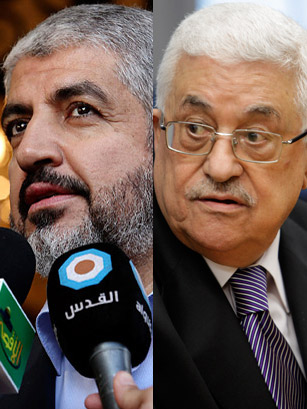
They represent opposite poles of the Palestinian political mainstream, and the enmity between their movements — Fatah and Hamas — means that no single leader speaks for the Palestinians. But Palestinian Authority President Mahmoud Abbas and Hamas leader Khaled Meshal both recorded important victories — albeit while suffering significant setbacks — in 2011: Abbas took his people's case for statehood to the United Nations, and while the initiative suffered a diplomatic defeat, it was a moral victory that boosted his domestic standing (which had been eroded by the fall of his longtime political patron Egyptian President Hosni Mubarak). Meshal's movement was hailed in the streets for forcing Israel to release more than 1,000 prisoners in exchange for captive Israeli soldier Gilad Shalit. Yet the rebellion against Hamas' exile host, Syrian President Bashar Assad, has necessitated a discreet search for new digs. By year's end, both men had agreed on a new reconciliation deal that would include elections in 2012, subjecting each of them to a risky test of Palestinian public opinion at a moment when neither seems able to offer a workable strategy for ending Israeli control of Palestinian territories.